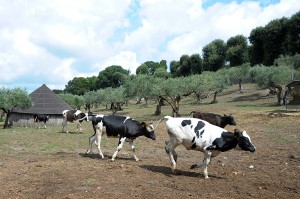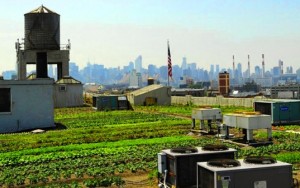 This a bit of old news: the pope has a 55 acre farm, he is concerned about the environment, what and how we eat and supports Community Supported Agriculture (CSA). Why? Because he knows the supreme value of living off the land, attending to God’s creation, how much of the world lives today. Plus, the Pope needs to be aware of the assault creation faces with the use of chemicals and exploitative farming and human practices.
This a bit of old news: the pope has a 55 acre farm, he is concerned about the environment, what and how we eat and supports Community Supported Agriculture (CSA). Why? Because he knows the supreme value of living off the land, attending to God’s creation, how much of the world lives today. Plus, the Pope needs to be aware of the assault creation faces with the use of chemicals and exploitative farming and human practices.
His farm at Castel Gandolfo –the papal summer residence 15 miles south of Rome– is a working farm with cows, 8 bee hives, vegetables, an olive grove and more. At this same farm is a working Observatory where serious astrophysics takes place, but that is another story. Not only does the daily papal menu contain fresh vegetables and meets, the produce is sold at the Vatican store making about $330K per annum. Amazing? No, not really. We are used to seeing the regal side of the papacy with rich religious and civil ceremonies and only now we are more aware of the active charitable side that has been a part of the ministry of the Bishop of Rome for a very long time. In this instance, Pope Pius XI established the farm in 1929.
A well-maintained farm is a well-maintained person and environment. We need, I believe, to renew our efforts in understanding the rhythms of the land so that we understand ourselves and in doing so understand ourselves as collaborators with God in building up His Kingdom on earth.
Jason Best has an article, “The Vatican Has a Farm, and Pope Francis is Going to Open it Up to the Public.” There are other stories about the farm from some news agencies: “A Visit to the Vatican Farm,” “How Cow!” and “The pope’s land of milk and honey.”
Would you be interested in issues pertaining to food justice? Read this article.
